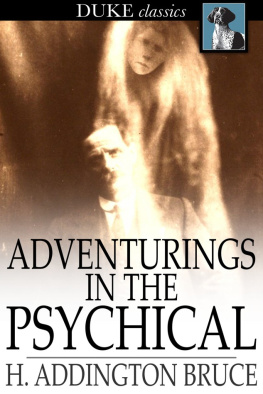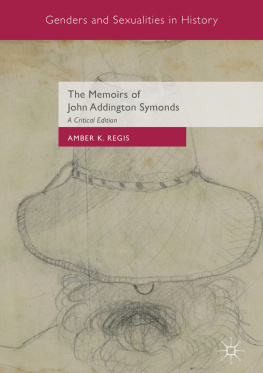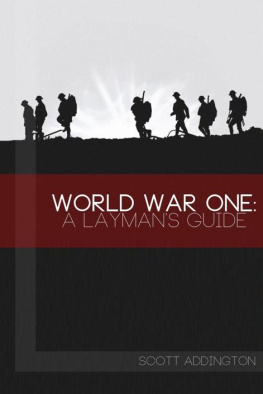HANDICAPS OF
CHILDHOOD
By
H. ADDINGTON BRUCE
Author of "Psychology and Parenthood," "The Riddle of Personality," etc.
NEW YORK
DODD, MEAD AND COMPANY
1921
C OPYRIGHT , 1917, BY
DODD, MEAD AND COMPANY, INC.
TO MY FATHER
JOHN BRUCE
IN LOVING REMEMBRANCE OF BOYHOOD
JOYS AND ADVANTAGES
PREFACE
It is my hope that this book will be read as a companion-volume to "Psychology and Parenthood," it being designed to amplify and supplement that earlier work. Its general aim, accordingly, is to present additional evidence in support of the central doctrine of "Psychology and Parenthood,"namely, that, in view of the discoveries of modern psychology with regard to individual development, the mental and moral training of children by their parents ought to be begun earlier, and be carried on more intensively, than is the rule at present. But whereas in "Psychology and Parenthood" the emphasis was chiefly on the importance of early mental training, the chief concern of the present book is to demonstrate the importance of early training in the moral sphere.
Everybody, of course, is more or less aware that lifelong character defects may result from parental neglect to develop in children such qualities as unselfishness, self-confidence, and self-control. But few really appreciate that, by this neglect, children are burdened with handicaps which, persisting into adult life, may imperil not alone the winning of success and happiness, but health itself. And, among parents, comparatively few are sufficiently alert to the danger signals giving warning that such handicaps of perhaps catastrophic significance are being needlessly imposed on their children. Eccentricities of behaviour in childrensuch as jealousy and sulkinessare too often ignored as being of no particular account, or are sadly misinterpreted by parents, with perhaps dire consequences to the children's whole careers.
These eccentricities and their possible consequences, these danger signals and handicaps, form in the main the subject-matter of the pages that follow. Desiring the book to be helpful to as many people as possible, I have been careful to avoid writing in any technical scientific way, and have tried to be simple and concrete. For this reason many illustrative cases from real life are given, my belief being that I could thus present most convincingly the truly remarkable facts with which the successive chapters have to deal. The result, I sincerely trust, will be to contribute in some degree to save children from the handicaps in question, and to assist adults now afflicted with any of these handicaps to overcome them.
In large part, this book has already appeared in the columns of several magazines. To the editors of these magazinesThe Century Magazine, Good Housekeeping Magazine, McClure's Magazine, Harper's Bazar, Every Week, and The Mother's MagazineI owe grateful acknowledgment for the opportunity to acquaint their readers with the discoveries and theories herein set forth. I am also under a debt of gratitude to numerous psychological and medical friends for advice and information. And, as in the case of all my previous books, I am particularly indebted to my wife for inspiration, encouragement, and innumerable helpful suggestions.
H. A DDINGTON B RUCE .
Cambridge, Massachusetts,
July, 1917.
I
MENTAL BACKWARDNESS
O NCE upon a time, not many years ago, a distinguished French psychologist paid a visit to a Parisian public school. It was accounted an excellent school, and its principal beamed with pardonable pride when the visiting psychologist, Doctor Alfred Binet, explained that he would like to see the pupils at work. Forthwith his desire was granted, and for a time he attentively followed the exercises of a class of forty children. He said little by way of comment, until, toward the close of the lesson-hour, he abruptly inquired:
"Which of these pupils do you consider the most intelligent?"
"That boy yonder," the master answered, nodding toward a pleasant-faced youngster who was diligently reading his book.
"And, pray, how old is he?"
"He is twelve."
"That, I suppose, is the average age for the class?"
"Well, no. I should say that they are on the average ten years old."
"What, then, is this twelve-year-old boy doing among them? If he is so bright, why is he lingering among these little ones? My dear sir," the psychologist continued, while the principal stood in abashed silence, "would it not be nearer the mark to call him a backward instead of a bright child? And would it not be well to search for the cause of his backwardness and try to remedy it? Assuredly, this boy should constitute for you a delicate problem that insistently demands solution."
This, I say, happened not many years ago. For that matter, incidents quite like it occasionally happen even to-day, testifying to the inability of some teachers to appreciate the presence, let alone the significance, of the laggard in the schoolroom. But in the brief period that has elapsed since Alfred Binet began his epoch-making investigations in the schools of Paris, there has undoubtedly been a genuine and widespread awakening in respect to the tremendously important problem raised by the backward child. Especially is this true of our own land. Nowhere else, perhaps, have more diligent efforts been made to ascertain the extent and causes of backwardness among the school-going population, and nowhere else is greater activity being displayed in the beneficent task of transforming the backward child, as far as possible, into the normal one.
Certainly, too, it must regretfully be added that there is abundant reason for this activity. Researches conducted during the past ten years by American school authorities and by independent investigators, have revealed an appalling state of affairs. Doctor Oliver P. Cornman, a district superintendent of the Philadelphia schools, making a statistical survey of five city school systems, found 21.6 per cent. of Boston school children a year or more behind the normal grade for their age; 30 per cent. behind grade in New York; 37.1 per cent. behind grade in Philadelphia; 47.5 per cent. behind grade in Camden, New Jersey; and 49.6 per cent. behind grade in Kansas City. Doctor Leonard P. Ayres, acting in behalf of the Russell Sage Foundation, investigated fifteen New York City public schools, having twenty thousand pupils, and found a degree of retardation ranging from 10.9 per cent. to 36.6 per cent. Scrutiny of the school reports of more than thirty other cities revealed an average retardation of 33.7 per cent. Taking this as a fair average for the whole country, we have a total of between six and seven million American school children who are a year and more behind grade.
To be sure, this does not mean that all these children are intellectually deficient, for the term "retarded" is by no means synonymous with "dullards." Irregular attendance owing to illness or truancy accounts for not a little retardation. The education of a good many children is deliberately postponed by their parents, and as a result they are necessarily behind grade for some time after they enter school. In the case of many others, especially in cities like New York and Boston, where there is a large foreign-born population, ignorance of the English language is a sufficient cause for temporary retardation. Thus, I have received a letter from Doctor William H. Maxwell, superintendent of schools, New York City, in which he points out that many New York school children are recently arrived immigrants, coming from a foreign country, considerably above the age at which school-going usually begins. The personal inefficiency of teachers is also a factor to be reckoned with. Many a child becomes a "repeater" simply because he has had a poor teacher.








